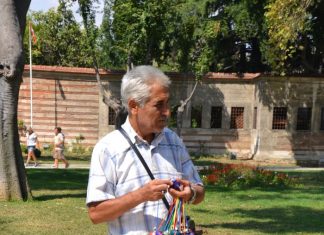This was Liberius’s world for the next quarter century. He represented the Roman empire (Theoderic’s branch of it, that is), commanded its military forces, showered generosity on the Christian church and so made it feel indebted to the regime, and was in every way the loyal supporter of the ruler who sent him there. In Provence, the old aristocracy had regrouped and reinvented itself, its churchmen were flourishing, and what passed as normality prevailed. When Bishop Apollinaris of Valence, from well within Clovis’s domains, paid a visit to Arles, the holy and distinguished lord bishop Caesarius greeted him and his companions. The prefect Liberius joined in along with his whole prefectural retinue, welcoming Apolli- naris with festive speeches. They were certain, they said, that divine mercy had sent him. Apollinaris returned the welcome in equally kind phrases. On such a day in such a place, the Roman empire seemed to be what it had been for centuries.
Liberius’s post was still military in its importance, and flare-ups occurred from time to time. The life of Caesarius written by three of his disciples gives us a moment in 527 when Liberius was personally in command of forces that had crossed the Durance River on patrol. Wounded by a lance in a minor skirmish, he fell from his horse and lay unconscious while the bishop was summoned. Liberius regained consciousness and began to kiss his bishop’s hand and then, by what he took to be a godly inspiration, grasped the bishop’s hooded cape, the birrus, and pressed it to his wound. At that moment the blood stopped flowing, and he was so restored, not just to health but to strength, that he swore he would have climbed back into the saddle and ridden on if the others had let him. The story goes on to tell how Liberius’s wife, Agretia, was similarly cured of illness when Caesarius laid hands on her.
Liberius was viceregal
Even if we are skeptical about the bishop’s magical powers, these stories offer a snapshot of the role and presence of this pious power couple in southern Gaul for a quarter century. Liberius was viceregal in authority and reputation and provided the essential link between Theoderic’s Italy and the protectorate in Spain. The last time we see Liberius in action in Gaul he is the patron and partner of Caesarius again, signing the acts of a church council held at Orange in 529. That council quietly rewrote the doctrines of Augustine—dead then 100 years—to make them palatable to the Gaulish church by deflating some of Augustine’s predestinarian ideas while continuing to praise the man himself. Without this deft act of homage and revision, Augustine’s chances of being reviled for heresy at some later date were perilously high.2 We needn’t imagine Liberius rootling around in the theological issues himself, but the secular guarantor of ecclesiastical authority was a very Roman role for a high official now, going back two centuries private balkan trip.
This viceroy was not done yet. We will see him again in later chapters more than once in military and civilian roles spanning the Mediterranean. Liberius is the authentic Theoderician man in many ways: Roman, pragmatic, tough, loyal up to a point, churchly enough to get by, and effective in establishing and maintaining Roman order in any setting.
Consider, by contrast, Boethius—Anicius Manlius Severinus Boethius— a man with a fine name and a family, the Anicii, almost as fine. Though we have no trace of anyone who read it in his century, Boethius wrote what later became the best-selling book, other than the Bible, throughout the Latin middle ages, the Consolation of Philosophy. That book, with its apologia for a life well lived that ended badly, is a precious source, corroborated and supplemented by other views, for the place of one man and his family in the Italy of his time.
Memmius
Boethius began well and soon improved his lot. His father was consul in 487, when Boethius was a small boy, but died not long afterward, and so Boethius was brought up in the household of the greatest senator of the age, his kinsman Symmachus, who had been consul in 485. Quintus Aurelius Memmius Symmachus (the claim to antiquity here is in the name Memmius, which recalls the wealthy patron the poet Lucretius had flattered 500 years earlier) was a man too lofty to spend much time in public office, preferring to devote himself to writing the history of Rome. We cannot follow the money in Boethius’s life as closely as we might wish, but by the time he had married Symmachus’s daughter, he was as wealthy as any man could be who was not emperor.
To the advantages of wealth, Boethius added real talent and an education unmatched by any native Latin-speaker in at least a century, and unmatched by anyone in Italy or the west for hundreds of years afterward. “You attended the schools of Athens from afar,”3 one contemporary wrote to him, leading scholars to debate whether this means he never left Italy or, on a more sophistic reading, that he actually pursued his studies in Alexandria, where the Platonism had a Christian flair. But philosophy was his metier; a comprehensive interpretation of all ancient Platonic and Aristotelian thought was his goal. This was the last age that could easily believe Plato and Aristotle had really been of one mind, and Boethius attempted—in a series of books that are now not much or easily read—to persuade his contemporaries of this truth and give it full expression. A handful of his short theological treatises, written in the 510s, survive as well. In these he took definite and intellectually sophisticated positions on the church controversies of his time, seeking peaceful solutions to the quarrels that separated Constantinople from Rome.
Read More about Theoderic addressed Boethius consistently








